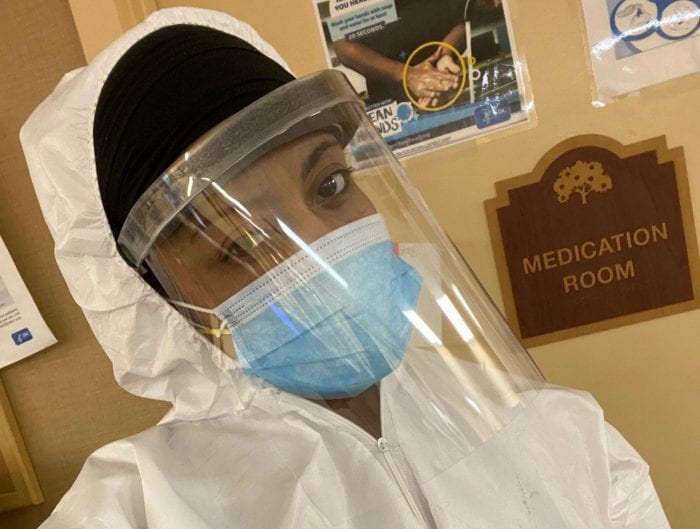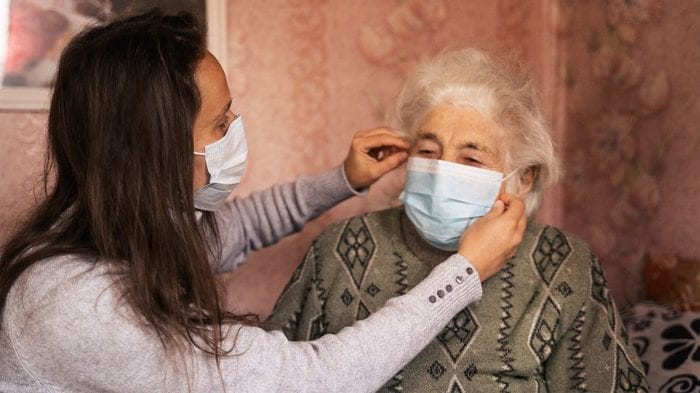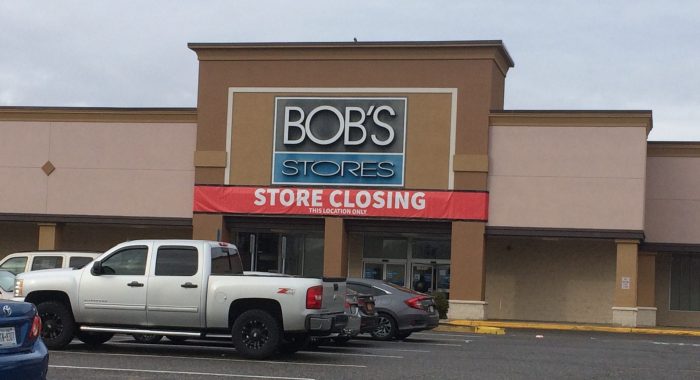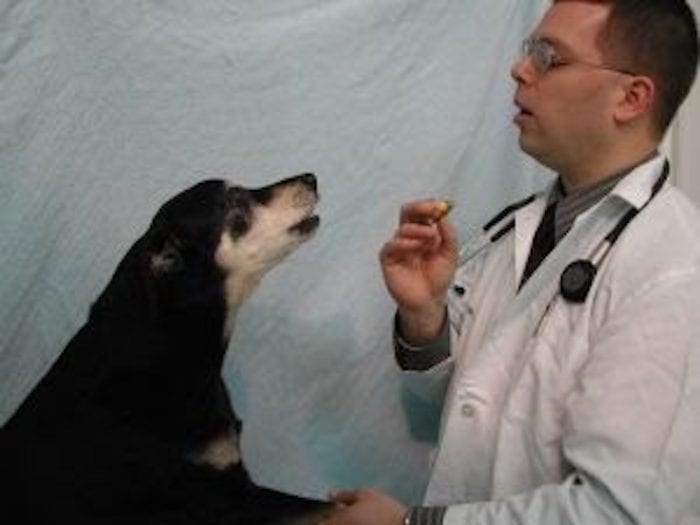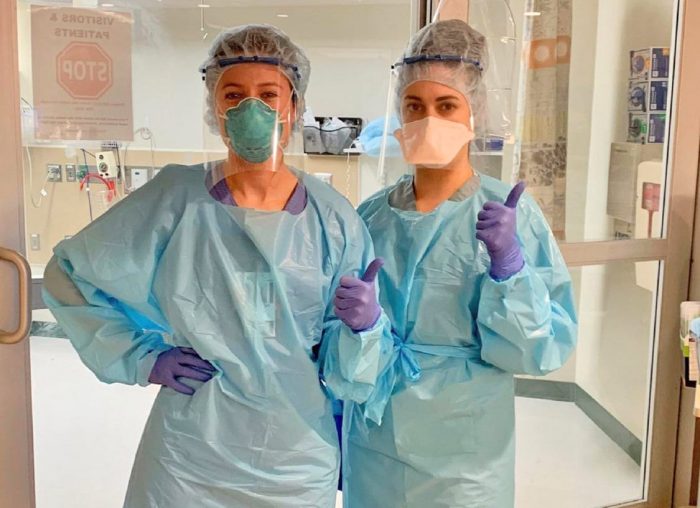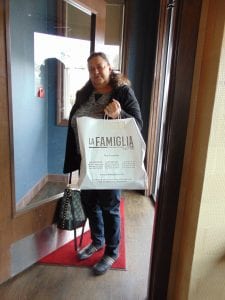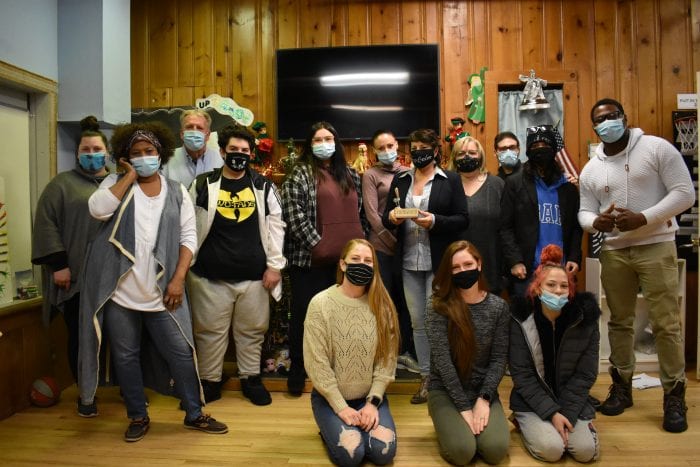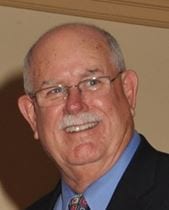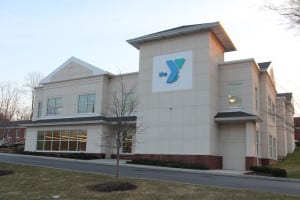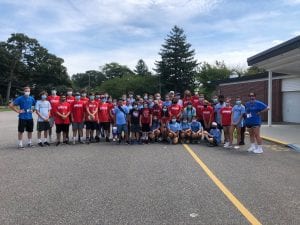North Shore businesses found themselves turning into chameleons during the pandemic, having to adapt to new hampering COVID-19 regulations and restrictions.
But many of these small shops and companies took the extra time the mandatory state shutdowns created by using their resources to reach out to their communities to lend a helping hand. While some made face shields, others sewed masks, helped those short on cash keep their living spaces and workplaces clean, among many other aids and services.
Beyond that help, in a time of rampant unemployment and job loss, many of these small businesses focused on keeping busy and keeping people employed, even in these difficult times.
Zaro’s Cafe
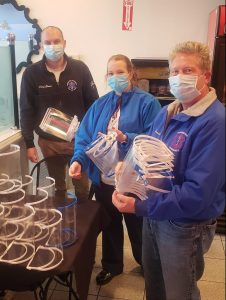
The lack of face shields for frontline workers in hospitals and first responders was an issue identified as soon as the infection rates for the coronavirus climbed. Several business owners who own 3D printers were ready to make whatever their local health care facilities, fire departments and more needed for battle.
While a restaurant may seem like an unlikely spot for making face shields, it wasn’t for Edmund Zarou, owner of Zaro’s Cafe on Jericho Turnpike in Huntington Station. On the side, he sells nightlights using 3D printers along with his cousin Alex Solounias.
In March, Zarou said he was going a bit stir crazy during the afternoon hours. With restaurants prohibited from indoor dining at the time and restricted to providing curbside service, he said many diners were not coming in for lunch and there was a lull until dinnertime. He and his employees were there for hours just prepping and cleaning.
“I’m not a person that likes to be stagnant, I always like to be doing something,” he said.
When he heard there was a need for face shields in the community, he turned Zaro Cafe’s dining room into a face shield production center using the 3D printers he had. He said through word of mouth and Facebook postings, he would get about 20 phone calls a day with people asking for at least five or 10 shields for fire departments, EMTs and nursing homes.
Zarou said he was busy making masks until about mid-May when production chains began to catch up and the restaurant businesses also started to pick up with the warmer weather and more people venturing out.
He ended up making close to 1,000 shields, and still can’t understand how the pandemic created such a need.
“I couldn’t believe these big companies or hospitals, that they would run out of that,” he said.
He added he was happy to help though.
“It was so easy for me to do it, because I had the know-how, machines and equipment,” he said. “So, once I was able to do it, I just did it.”
Railex Corporation
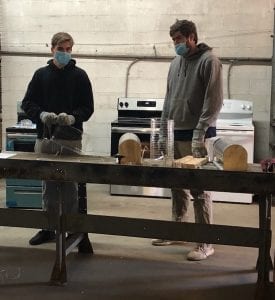
At the same time Zarou learned of the need for face shields, so did Setauket resident Richard Sobel, who along with Old Field Village trustee Steve Shybunko, owns the conveyor system company Railex Corporation in Copiague.
Sobel first heard of the need when faculty and students at The Stony Brook School, where his son Owen attends, were using 3D printers to make face shields for Stony Brook University Hospital. When he heard of the need, he knew Railex could help and even produce more for them.
Four days after the business shut down due to state mandates, Sobel was able to reopen again and keep employees working. After the company produced 5,000 shields to donate to SBUH, they went on to make another 20,000 over the next five to six weeks.
Like Zarou, he said once the supply chain caught up, and businesses were able to open up again, he found they were able to go back to producing conveyor systems.
The philanthropic opportunity also brought two new ventures for the company. First they sold some shields to local doctors’ offices, and they also began creating mobile area guard partitions with polycarbonate shields that many places, including courthouses, are using to separate people and enforce virus restrictions.
Sobel said it would have been difficult to tell employees they were shutting down for a few months. As a manufacturing company, there aren’t many opportunities to work from home.
“It was a huge deal to be able to do that, keep the business open,” he said. “I would say that our mantra was work safely and stay a little bit paranoid.”
While they navigated new waters in working during a pandemic, that mantra worked as no one in the company came down with COVID-19.
He said he was impressed with the donations facilitated from The Stony Brook School from stores such as Home Depot, Lowe’s and P.C. Richard & Son.
“You would call them up, and they would say ‘yes,’ right away,” he said.
71 Visuals
Craig Geiger, CEO of 71 Visuals in Hauppauge and a Stony Brook resident, also rose to the occasion when he heard health care workers and first responders were in need of face shields.
“There were people pulling up that were literally crying, saying, ‘You have no idea how important this is to me.'” — Craig Geiger
The business usually provides signage products including light boxes, trade show booths, LED signs and stages, banners, posters, counter wrap, window tinting and wall graphics, with most of their customers in retail. With industrial machines, Geiger said he knew his company could meet the demand for face shields quickly.
Like Sobel, the CEO said that the company was not only able to help health care workers and fire departments but also keep approximately 25 to 30 employees working. He also took on an additional 60 employees, many of whom were friends with his nephew, a senior at Commack High School.
The company also started a GoFundMe page where Geiger said they were overwhelmed by the generous donations. The company got to a point where they were making 8,000 shields a day.
The CEO said he was surprised by the need and the number of calls he received from hospitals and surgeons including St. Catherine of Siena Medical Center in Smithtown and Stony Brook University Hospital, and even medical facilities outside of Long Island.
“I remember reading that Stony Brook was excited that they were able to use some of the equipment they had on their premises for the college to make face shields, and I think they were able to do like 50 or 60 a day like it was,” he said.
After learning about the need at SBUH, 71 Visuals created 5,000 shields for the hospital.
Over the months, the company made more than 400,000 shields. In addition to keeping its employees at work, additional projects came out of the philanthropic act as they then began making and selling acrylic barriers for hospitals and small three-sided acrylic barriers to about two dozen school districts. The barriers are used at students’ desks and are portable.
While Geiger is grateful for keeping his company open, he said one day when they arranged a curbside pickup to fulfill requests for shields, he was amazed when there was a line down the street and traffic police had to manage the flow of cars.
He said it was an emotional day.
“There were people pulling up that were literally crying, saying, ‘You have no idea how important this is to me,’” he said.
SERVPRO
SERVPRO of Port Jefferson was recently recognized by the Port Jefferson Station/Terryville Chamber of Commerce. The company provides services to customers in Port Jefferson as well as the surrounding areas in the field of handling fire, water and mold cleanup as well as restoration.
The chamber thanked the company for cleaning its historic train car for free. Owner Risa Kluger said they also have done some free cleanings for fire departments as well as regular customers who were unable to pay their bills.
With many worrying if they could catch COVID-19 from surfaces, the company’s signature microbial misting, air-duct and air-scrubber commercial cleaning service provided peace of mind to many.
When regular customers, who needed a general cleaning for their business or a specific one for their home due to a COVID-19 reason, mentioned being short on cash, Kluger said they were happy to provide a free service.
“If there’s a repeat customer or someone who has a situation where they are in need, we always listen and try to help,” she said.
She also credits being able to assist free of charge to some due to her business being considered essential during the pandemic as she was able to stay open and keep employees working.
“Sometimes people choose to clean up things themselves a little more often, but we didn’t take as big of a hit as others,” she said.

